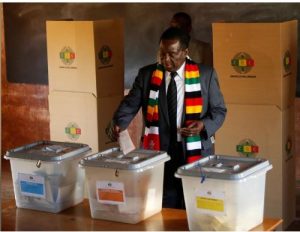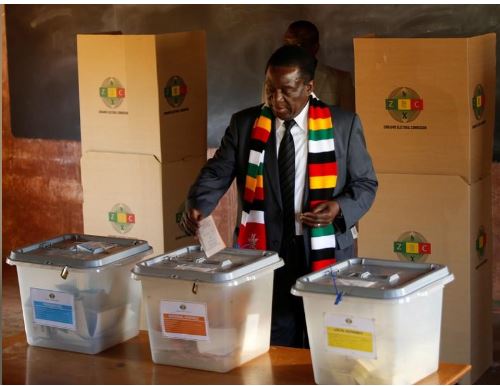Zimbabwe held its first election on Monday since former president Robert Mugabe was ousted in a de facto coup and European Union observers said the vote was “very smooth” in some places and “totally disorganised” in others.

President Emmerson Mnangagwa, a long-time ally of Mugabe, faces opposition leader Nelson Chamisa in the vote. Mnangagwa is the frontrunner but the latest poll shows a tight race.
A credible election after Mugabe’s 37-year rule is essential if Zimbabwe is to exit painful sanctions imposed on the government and secure the donor funding and investment needed to stem chronic cash shortages.
Elmar Brok, the EU’s chief observer, said many voters, particularly young women, left voting queues in frustration at long delays. The EU has not yet made a conclusion on how to judge the vote, he said.
“In some cases it (voting queues) works very smoothly but in others we see that it is totally disorganised and that people become angry, people leave,” Brok told reporters in Harare.
“We have not found out whether they is coincidence or bad organisation,” he said.
Chamisa on Monday said there was an attempt to “suppress and frustrate” the vote in urban areas where he has strong support. He offered no evidence to support his claim and there was no immediate comment from the Zimbabwe Electoral Commission.
Mugabe emerged from eight months of obscurity on the eve of the election to announce he would vote for the opposition, surprising Mnangagwa who accused him of striking a deal with Chamisa.
Editing by Matthew Mpoke Bigg

